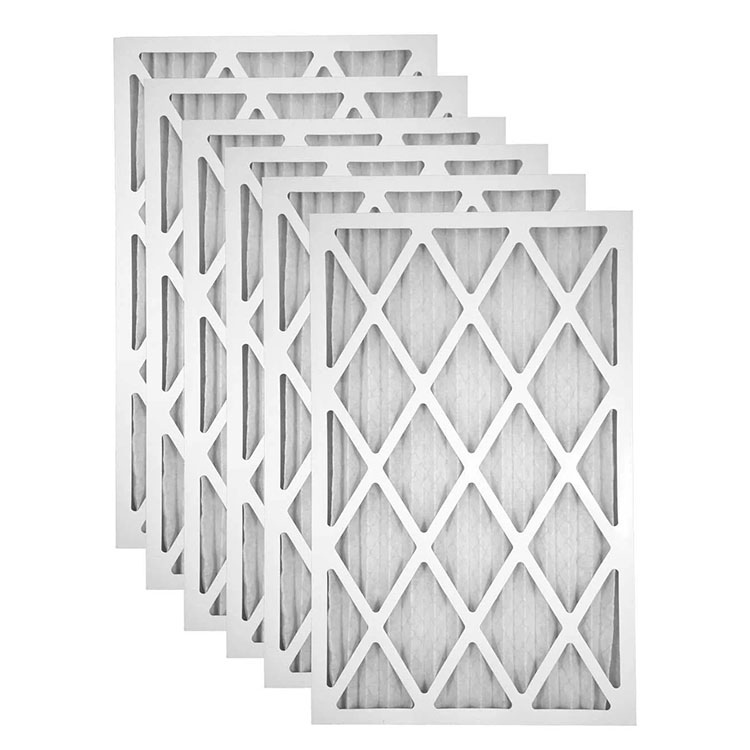What Is an Air Filter and Why Is It Important?
2025-04-30
An air filter is a crucial component in various systems, including HVAC systems, automobiles, and industrial equipment. It is designed to capture dust, dirt, and other harmful particles from the air, ensuring clean and healthy airflow. But what exactly is an air filter, and how does it work? Let's dive into some common questions about air filters.

What Is an Air Filter?
An air filter is a device that removes impurities and contaminants from the air before it enters a system. Air filters are used in various applications, such as in air conditioning systems, automotive engines, and ventilation systems. They help ensure that the air circulating within a system is free from harmful particles that could cause damage or health issues.
How Does an Air Filter Work?
Air filters work by trapping particles as air passes through them. The filter is typically made of porous materials such as paper, foam, or synthetic fibers. As air flows through the filter, the particles get caught in the filter material while clean air continues to pass through and circulate. The efficiency of the air filter depends on its design, material, and the size of the particles it can trap.
Why Is an Air Filter Important?
Air filters are important because they help maintain the cleanliness of the air, protect equipment, and improve the overall health of individuals. In HVAC systems, for example, clean air filters ensure that the system runs efficiently, improving indoor air quality and preventing the buildup of dust and debris. In automotive applications, air filters protect the engine from harmful particles that could reduce its lifespan or cause damage.
What Are the Benefits of Using an Air Filter?
Using an air filter offers several benefits:
- Improved Air Quality: Air filters remove dust, pollen, allergens, and other pollutants, improving the quality of the air you breathe.
- Enhanced System Efficiency: By keeping systems clean and free from contaminants, air filters help maintain optimal performance in HVAC, automotive, and industrial systems.
- Health Benefits: Air filters can reduce the presence of harmful particles that contribute to respiratory issues and allergies, promoting a healthier environment.
- Extended Equipment Life: By filtering out contaminants, air filters prevent dirt and debris from damaging sensitive components in HVAC systems and engines, extending their lifespan.
What Are the Common Problems with Air Filters?
While air filters are highly effective, they can encounter some issues:
- Clogging: Over time, air filters accumulate dirt and dust, which can cause them to clog and reduce their efficiency.
- Decreased Airflow: A clogged air filter restricts airflow, which can lead to reduced system performance and efficiency.
- Wear and Tear: If not replaced regularly, an old or damaged air filter may fail to function properly, allowing harmful particles to pass through.
How Can You Maintain or Replace an Air Filter?
To keep your air filter working efficiently:
- Regular Replacement: Air filters should be replaced regularly according to the manufacturer’s recommendations, typically every 1-3 months for HVAC filters or as needed for automotive filters.
- Cleaning: In some cases, air filters can be cleaned and reused. However, this depends on the type of filter and the manufacturer’s guidelines.
- Check for Damage: Inspect the air filter for any signs of damage, such as tears or holes. If it’s damaged, it should be replaced immediately.
Where Can You Buy an Air Filter?
If you're looking for a reliable and high-quality air filter, we invite you to visit our website at [www.trustyfilter.com]. We offer a variety of air filters designed to meet your specific needs, whether you're looking for filters for industrial systems, automotive applications, or HVAC systems. Browse our selection and place your order today for the best air filtration solutions!
Air filters are an essential part of many systems, ensuring clean and efficient airflow while also promoting a healthier and more productive environment. Regular maintenance and timely replacement of air filters will keep your systems functioning at their best.



